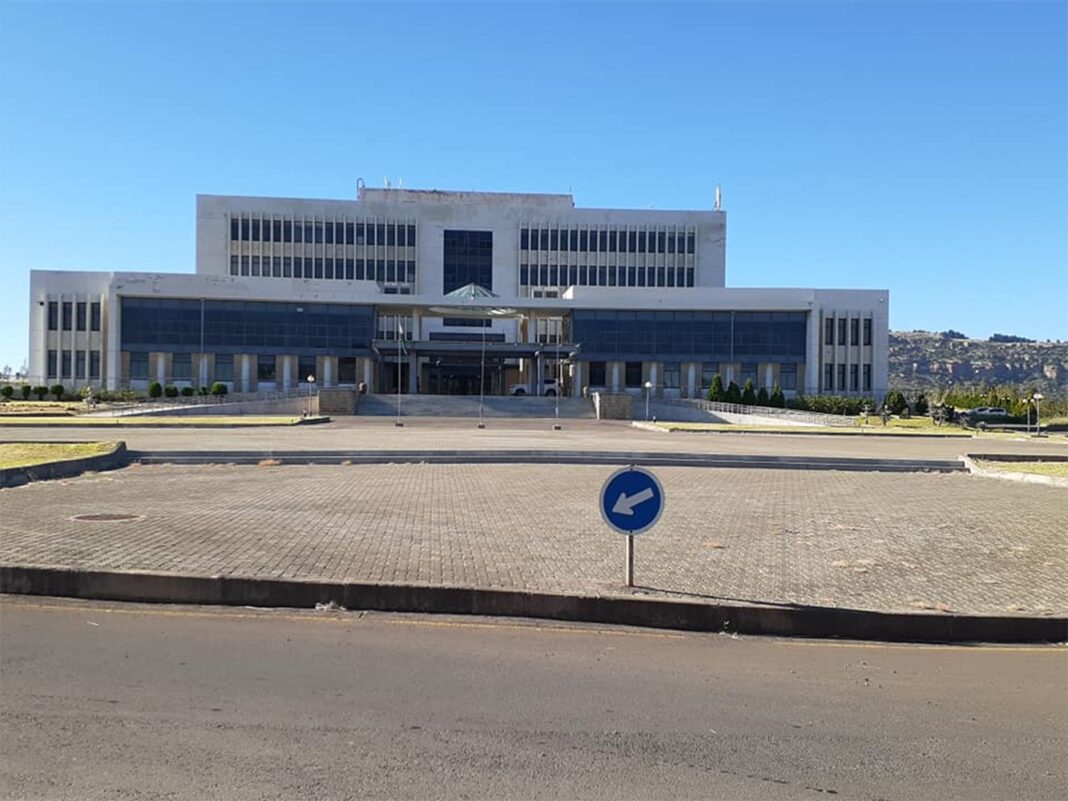The Ministry of Trade, Industry, and Business Development, in collaboration with the United Nations Development Programme (UNDP), yesterday held a workshop in Maseru focused on the validation of Lesotho’s National African Continental Free Trade Area (AfCFTA) strategy.
Launched in January 2021, the AfCFTA aims to enhance intra-African trade and establish a single continental market for goods and services among 54 African countries.
Speaking at the workshop, economist Mamello Nchake said AfCFTA fosters economic integration and diversification by reducing dependence on specific sectors.
“It promotes value addition and creates opportunities for Small, Medium, and Emerging Enterprises (SMEDs),” she noted.
However, Nchake highlighted several implementation challenges for Lesotho, including limited export diversification – where the economy remains heavily reliant on textiles and diamonds, making it vulnerable to sector-specific shocks. Other barriers include complex customs procedures, lengthy clearance times, and a shortage of skilled labour.
Despite these challenges, Nchake cited promising opportunities in agriculture, particularly in the production of high-value crops such as mushrooms, herbs, and spices, as well as livestock products like industrial leather goods.
“Lesotho faces ongoing challenges such as economic dependence, high unemployment, and infrastructural constraints, but AfCFTA provides avenues for diversification and deeper regional integration,” she pointed out.
She further explained that the AfCFTA implementation strategy and action plan will serve as a comprehensive roadmap to help Lesotho leverage AfCFTA benefits and enhance its trade competitiveness.
She also emphasised the importance of evidence-based planning, drawing insights from a wide range of secondary sources and stakeholder consultations across various sectors.
The strategy also calls for improved collaboration among government entities, the private sector, and civil society to identify trade barriers, enhance market access, and support sustainable economic development. Specific actions include upgrading infrastructure, streamlining customs processes, and investing in capacity-building programmes to ensure that Lesotho is well-positioned in the evolving regional trade environment.
On the financial side, Nchake stated, implementation funding will be integrated into the national budget through an outcome-based approach.
Nonetheless, core operational costs will require alternative funding sources, including partnerships with development agencies and civil society organisations, to strengthen private sector capabilities and support marginalised groups.
Nchake also stressed the importance of collective effort in ensuring that the AfCFTA strategy effectively supports Lesotho’s economic growth.
At the same occasion, Ministry of Trade, Industry, and Business Development Principal Secretary, Palesa Matobako, echoed the same sentiments.
“It is imperative that we address the challenges businesses face, such as non-tariff barriers, inadequate infrastructure, and limited access to finance. By working together, we can create a seamless trade environment that empowers our businesses to thrive,” Matobako said.
She also called for investment in training and knowledge sharing within the business community. “The potential benefits of AfCFTA will only be realised if our entrepreneurs are equipped with the necessary skills and information to navigate the complexities of international trade. Let us invest in training programmes, workshops, and resources that will empower our entrepreneurs to seize the opportunities AfCFTA presents.”








